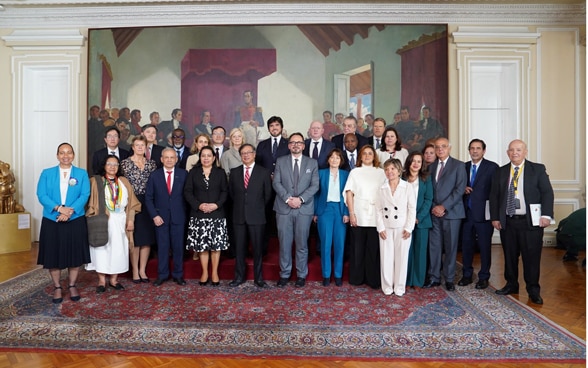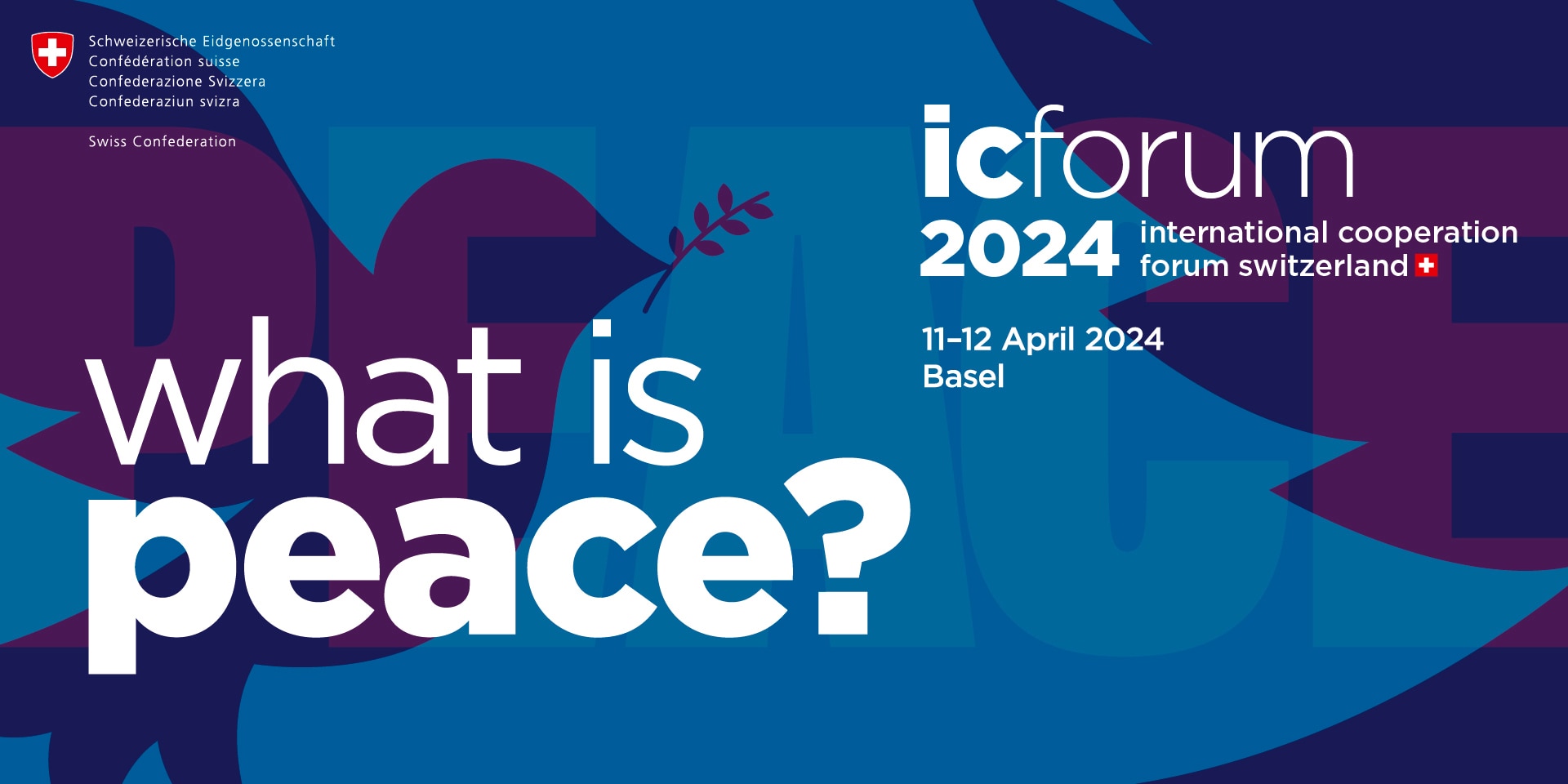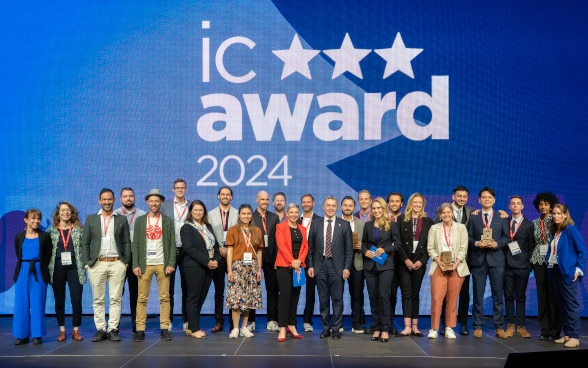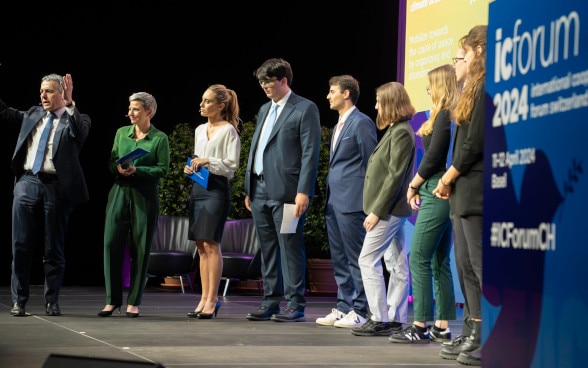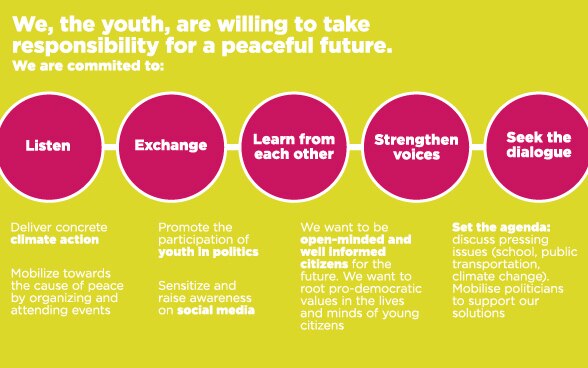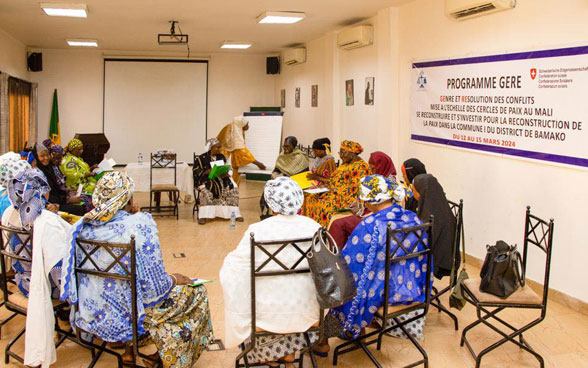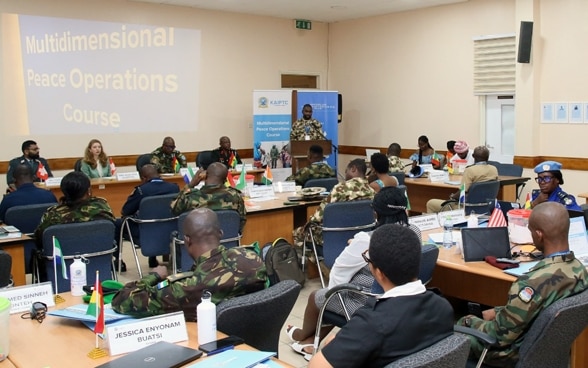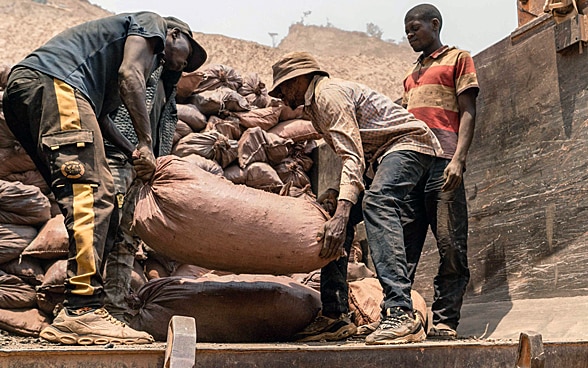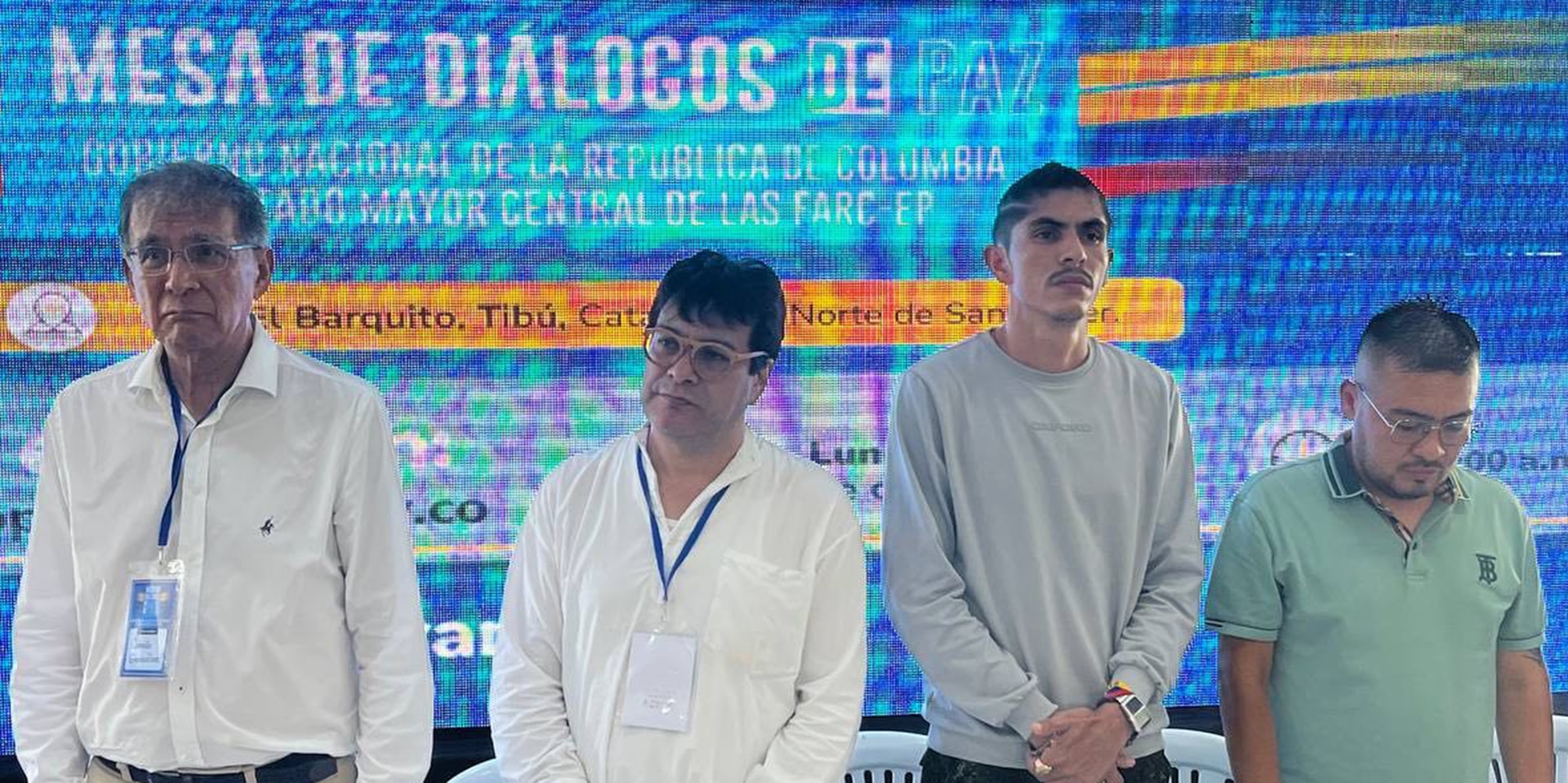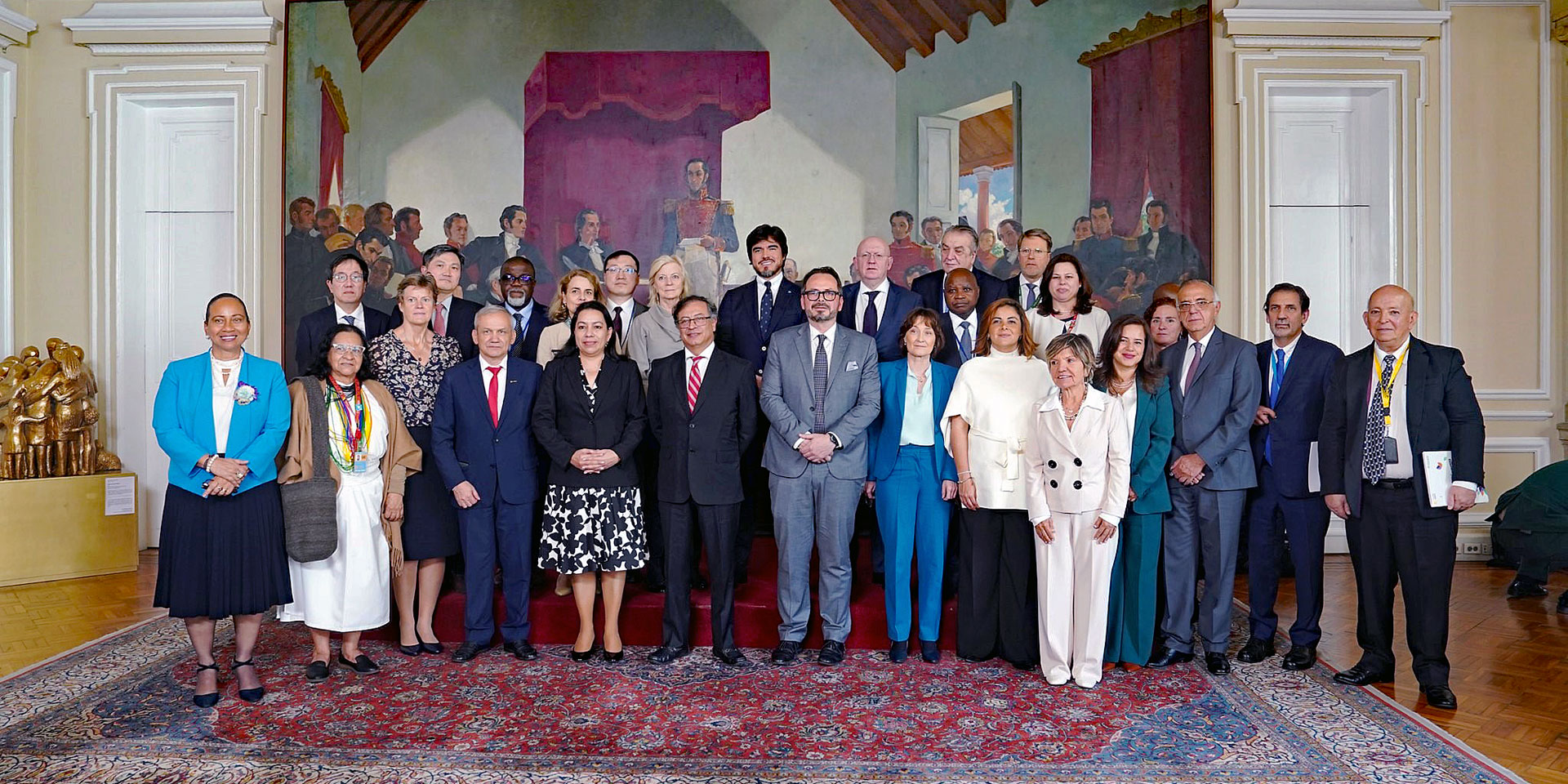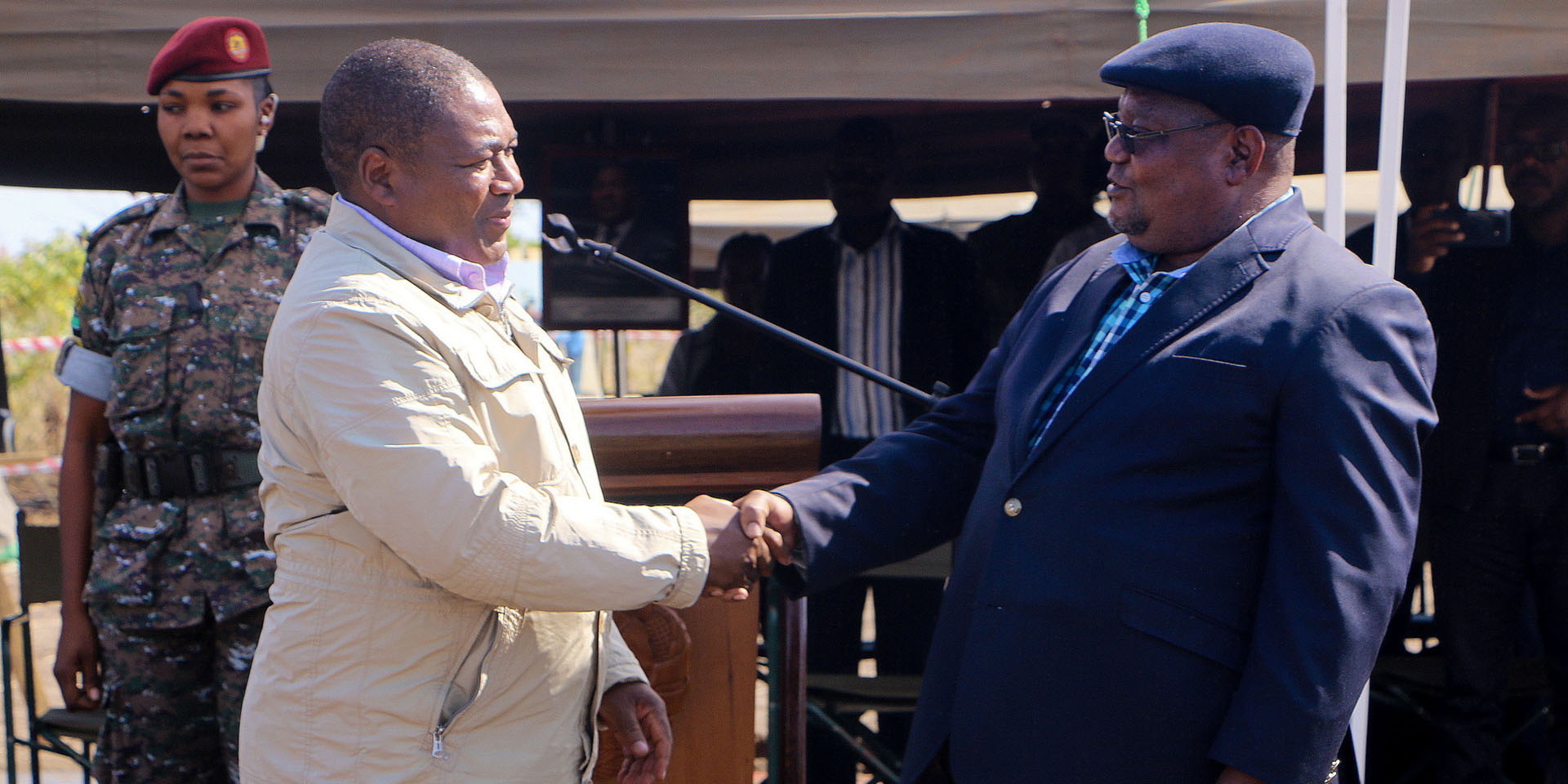Twenty years of commitment to peace in Colombia
Switzerland has been engaged in peacebuilding in Colombia for over 20 years. Its activities fall under an international cooperation programme aimed at a peaceful, inclusive and prosperous Colombia. The programme is implemented jointly by the FDFA's Peace and Human Rights Division (PHRD), the SDC and the State Secretariat for Economic Affairs (SECO) at the EAER. This clearly demonstrates the very complementary nature of Switzerland's commitment in Colombia, with each unit contributing to peace in its own way: the PHRD through its peace policy activities, the SDC through demining projects and support for the UN Peacebuilding fund and SECO through a value chain project (cocoa, coffee, artisanal gold) providing a stable and legal income for the affected population, for example.
Under the responsibility of the PHRD, Switzerland has been supporting the implementation of the 2016 peace agreement with the former Revolutionary Armed Forces of Colombia (FARC-EP), focusing in particular on aspects of political participation and dealing with the past.
In Colombia, several simultaneous peace negotiations are currently under way. Since October 2023, Switzerland, along with other countries, has also taken on an official mandate as guarantor state in the peace negotiations between the Colombian government and the rebel group EMC FARC-EP (Estado Mayor Central de las FARC-EP). Within this framework, Switzerland is present during negotiations and provides political and technical assistance throughout the process. In addition, Switzerland has been a member of the support group for peace talks with the National Liberation Army (Ejército de Liberación Nacional, ELN) since November 2022.
Switzerland's seat on the UN Security Council until the end of 2024 also allows it to exert a positive influence on the Colombian dossier in New York. Together with the Colombian government, Switzerland organised an event in New York in October 2023 to launch Colombia's first action plan on women, peace and security. In February 2024, Security Council members also visited Colombia under the co-leadership of Switzerland in order to gain greater insight into the country's peace process.
